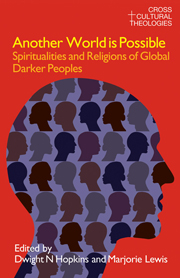Book contents
- Frontmatter
- Dedication
- Contents
- Acknowledgements
- Contributors
- Introduction
- Part I India
- Part II Japan
- Part III Australia
- Part IV Hawaii
- Part V England
- Part VI South Africa
- Part VII Botswana
- Part VIII Zimbabwe
- Part IX Ghana
- Part X Cuba
- Part XI Jamaica
- 19 Social Conditions and Spiritual Solutions in the Caribbean
- 20 The Church and the Jamaican Society
- Part XII Brazil
- Part XIII USA
- Endnotes
- Select Bibliography
- Index of Subjects
- Index of Names
19 - Social Conditions and Spiritual Solutions in the Caribbean
from Part XI - Jamaica
- Frontmatter
- Dedication
- Contents
- Acknowledgements
- Contributors
- Introduction
- Part I India
- Part II Japan
- Part III Australia
- Part IV Hawaii
- Part V England
- Part VI South Africa
- Part VII Botswana
- Part VIII Zimbabwe
- Part IX Ghana
- Part X Cuba
- Part XI Jamaica
- 19 Social Conditions and Spiritual Solutions in the Caribbean
- 20 The Church and the Jamaican Society
- Part XII Brazil
- Part XIII USA
- Endnotes
- Select Bibliography
- Index of Subjects
- Index of Names
Summary
The title of this essay is purely academic at this juncture; and the reason for such a disclaimer is quite simple. There was a time when the problems of the Caribbean region could be summed up in the broad stroked assessment of colonialism and neo-colonialism. Then spirituality would have been the viable suggestion as a solution, because it addressed the consequences of colonialism and neo-colonialism through the demands of the principle of equality under the rubric of the imago dei—we are all made in the image of God.
Colonialism brought with it and imposed standards of superiority/ inferiority within established cultural patterns. The European colonizers enforced a cultural stratification from which developed racism, classicism, ageism, sexism, colorism, etc. It made sense to suggest solutions of a spiritual nature because the colonizers had introduced the subject in their cultural debate. At the time slavery was being questioned for the rightness or wrongness of its existence, a prominent part of the debate was whether the African was in possession of a soul. “All human beings are created in the image of God” was a good overarching answer, and a spiritual one indeed.
The difference with neo-colonialism was thought to be that it came without the militant intrusion and occupation of colonialism. By then, Vietnam had left such a sour taste in everybody's mouth that the tragedy of the 1980s overthrow of the legitimate government of Grenada (in the Caribbean), the interference in Panama, and the occupation of Iraq were not imagined.
- Type
- Chapter
- Information
- Another World is PossibleSpiritualities and Religions of Global Darker Peoples, pp. 273 - 280Publisher: Acumen PublishingPrint publication year: 2009



